What is the philosophy of the Nobel Prize-winning author who kept asking 'Is life meaningless?'

'
Is life meaningless? And other absurd questions --Nina Medvinskaya --YouTube
The French Algeria , where Camus was born, was in a state of turmoil due to the conflict between French settlers and indigenous peoples. Violence was routinely present around Camu.

Camu's father died in World War I. World War II broke out when Camu was in his late twenties, but Camu, who suffers from tuberculosis, was disqualified as a soldier and earned a living as a journalist in Algeria.

Camu witnessed the devastation of an intensifying war and could not find meaning in the endless tragedy and suffering.

Camu, who witnessed the tragedy of the war and amplified his disappointment with life, asked himself, 'If this world is meaningless, is my life worth it?' Become.

Young people of the same generation as Camus were thinking about the same questions as Camus under the existentialism brought to France by Jean-Paul Sartre .

Existentialism was the idea that humans face dire situations and try to find the meaning of life in them. However, Camu did not accept this idea.

Kamu thinks that 'a quiet and cold world' and 'searching for the meaning of life' are puzzle pieces that do not fit, and the conflicts and conflicts that arise when trying to combine these two are called 'absurdity'. I caught it. In other words, Kamu thought that life was essentially meaningless.

The theme of Kamu's early works was the question 'How to live a meaningless life', and Kamu himself named this question, which lasts forever, 'Absurd Series'.

The novel 'The Stranger' published by Camu in 1942 provides the answer to this question.
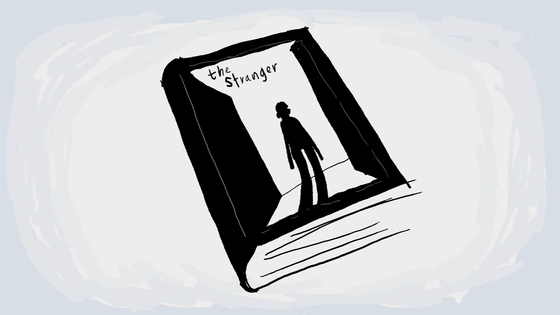
The main character of the 'Gentile', Meursault, is a young man whose emotions are separated and he finds no meaning, and does not shed tears at his mother's funeral.
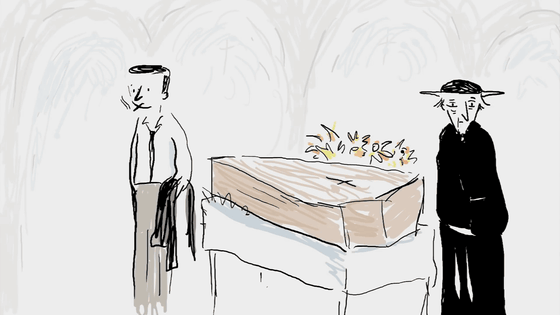
Meursault helps an acquaintance's criminal plan and gets into trouble and kills a person, but he is not blamed for his conscience.
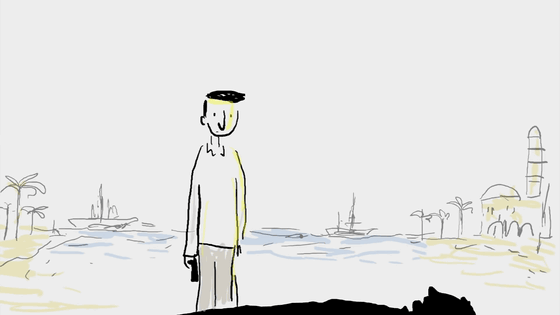
The world is meaningless to Meursault and has no power to judge morality. An orderly society is an enemy to Meursault, and the feeling of alienation that attacks Meursault slowly amplifies.
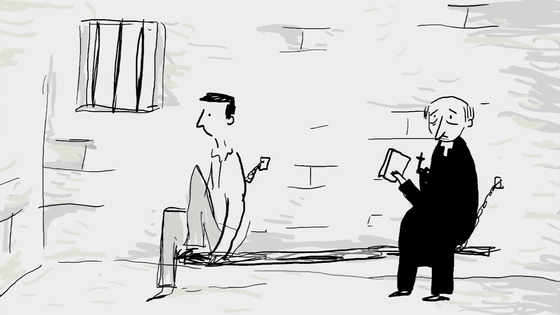
Camu won the Nobel Prize in Literature at the young age of 44 in 1957 for his philosophy in this work.
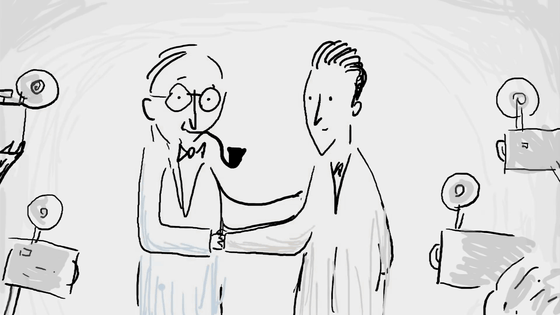
Even after announcing 'Gentiles,' Kamu continued to search for the meaning of life in absurdity in various works such as plays and essays, not limited to novels.
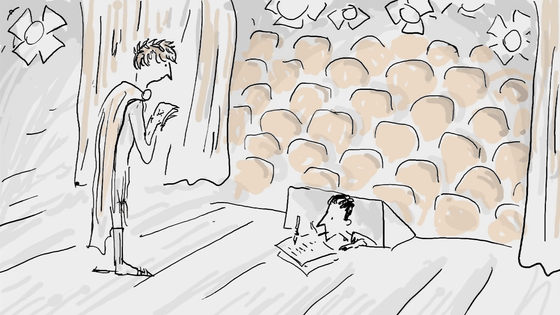
And Camu arrives at one question. It says, 'If life is really meaningless, isn't suicide the only rational act for a meaningless life?'
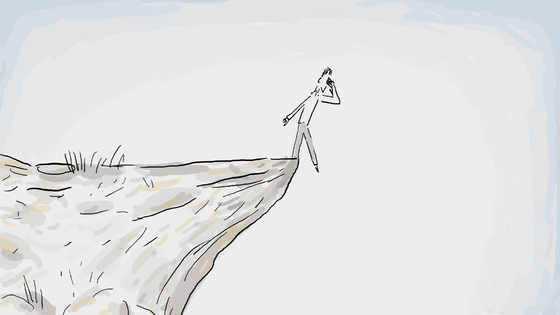
The answer Camu gave to this question was no. Even if we cannot unravel this absurd world, we conclude that choosing to live best expresses the true freedom of humankind.
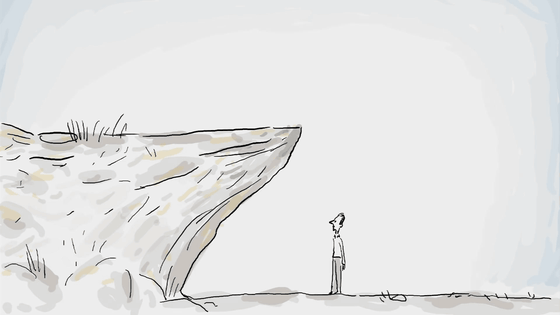
In his Greek mythological essay The Myth of Sisyphos, Camus showed that he would accept and live an absurd life.
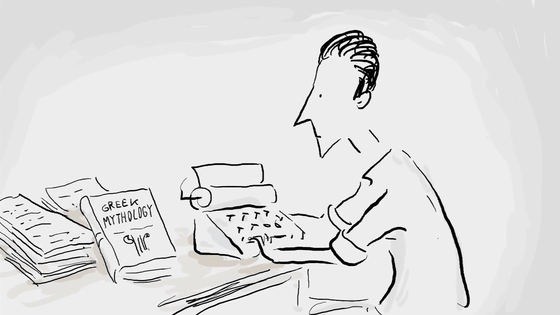
The human king Sisyphus was punished for deceiving the Greek gods, pushing a huge rock forever to the summit. Sisyphus pushes the rock up to the summit as the gods say, but the moment it reaches the summit, the rock rolls down to the foot of the mountain again.
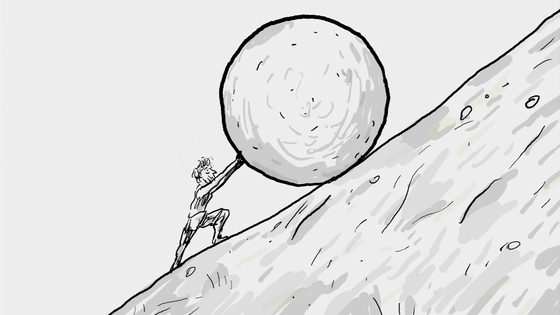
The punishment of Sisyphus is inevitably pointless and painful, but Camus said, 'This myth is tragic because Sisyphus is awakened to consciousness. The hope that the rock will be pushed up to the top of the mountain will support Sisyphus. If so, his pain would not exist, and today's workers are doing the same job every day, 'he said, and happiness in recognizing and accepting the absurdities of the world. I thought it would be.
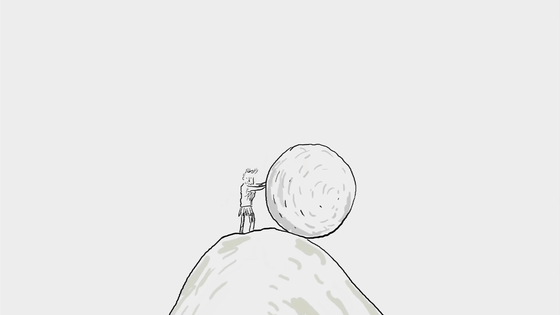
However, this idea was not accepted by existentialists who said, 'A revolution by violence is also necessary to realize the ideal way of life.'
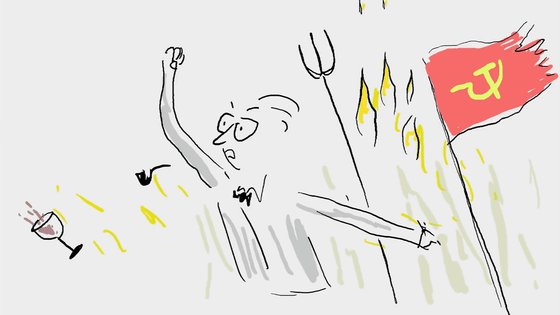
However, Camu argued that 'overturning the power relationship of power would only create a never-ending cycle of violence,' and thought that an understanding of humanity shared by all should be established. For this reason, while Camu was highly regarded worldwide, it was in conflict with the French literary world.
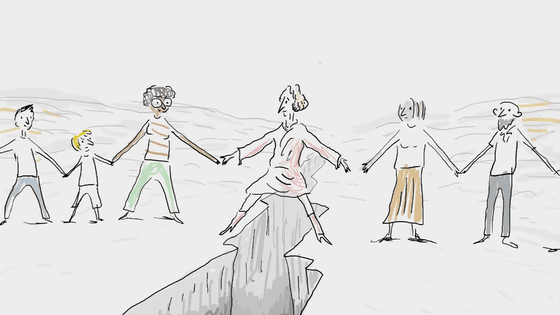
Not minding such a conflict, Kamu set out on the autobiographical novel 'The
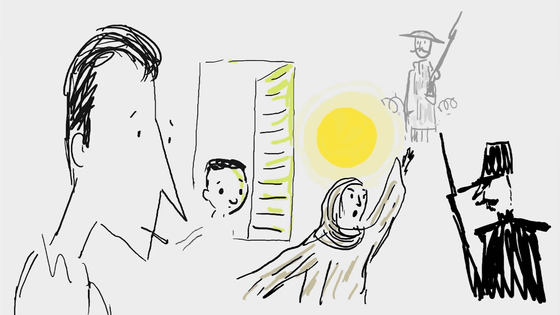
However, Camu suddenly died in a car accident in 1960.

Although the 'first human being' was incomplete, Camus' concept of absurdity blended into world literature, 20th century philosophy, and popular culture.
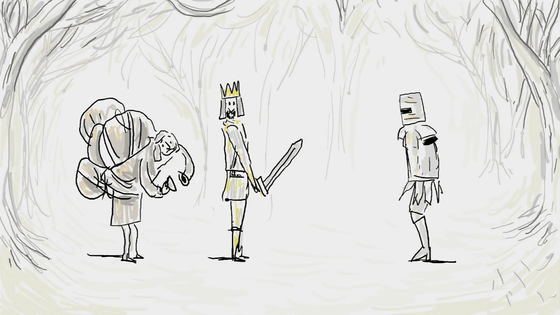
'The idea of Camu inspires this meaningless world, not frustration,' the movie ends.

Related Posts:
in Video, Posted by log1i_yk







